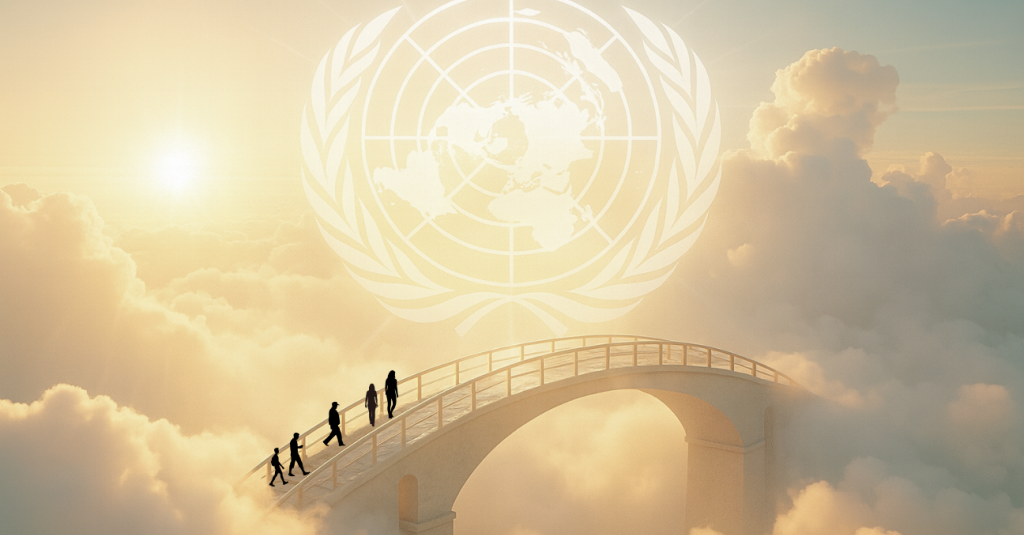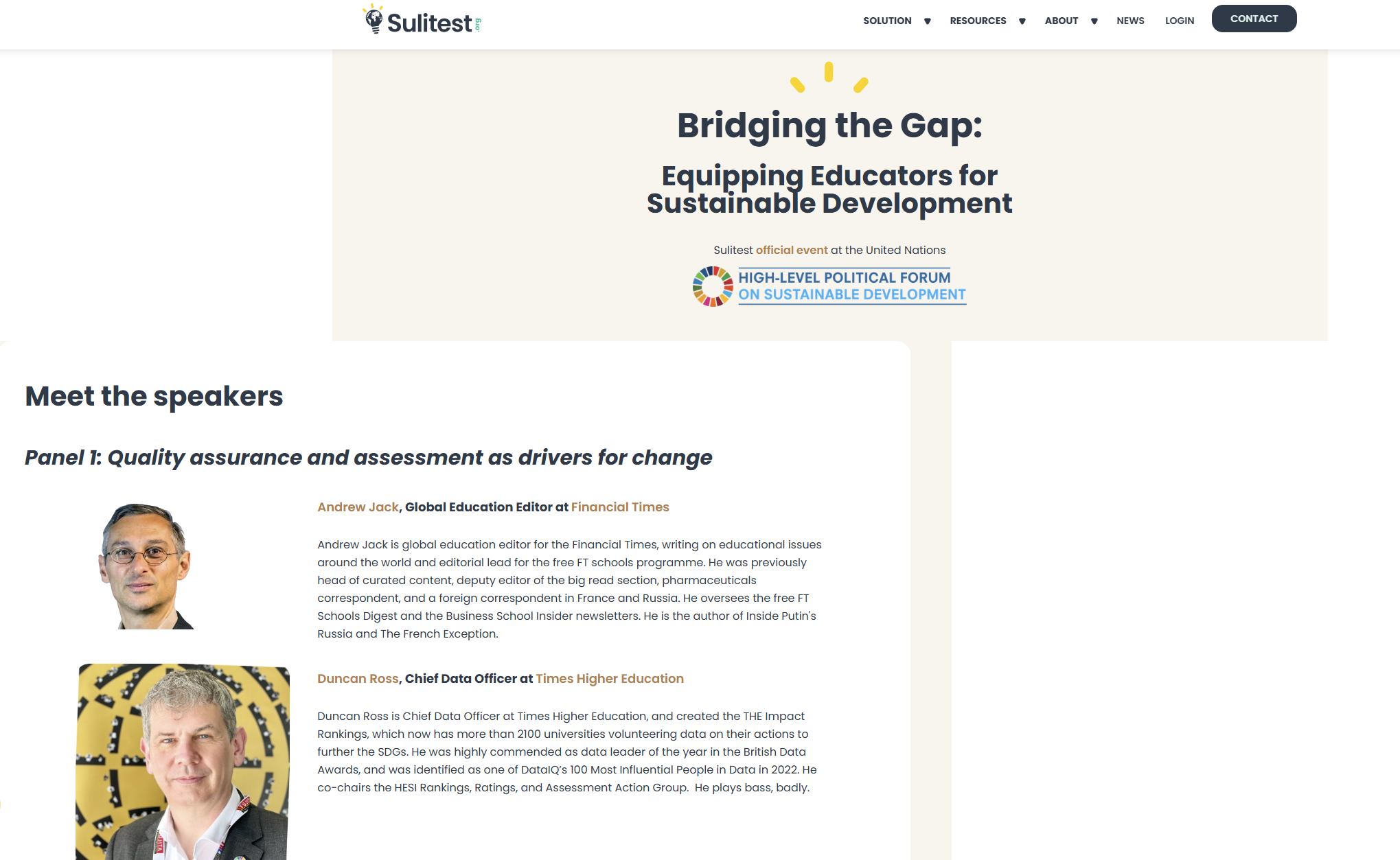News
Bridging the Gap: Ajman University Gains Insights from UN Event on Equipping Educators for Sustainable Development


In line with its deep commitment to integrating sustainability across all academic and operational facets, Ajman University (AU) was an engaged participant in the Sulitest official event, “Bridging the Gap: Equipping Educators for Sustainable Development,” held at the United Nations.
This high-level forum brought together a global coalition of leaders from higher education accreditation bodies, sustainability networks, and ranking organizations to address one of the most pressing challenges in education: effectively preparing educators to lead the charge on the UN Sustainable Development Goals (SDGs).
The event featured two dynamic panel discussions, each focusing on a critical lever for systemic change in higher education.
Panel 1: Quality Assurance and Assessment as Drivers for Change
Moderated by John North of the Globally Responsible Leadership Initiative (GRLI), this panel explored how accreditation standards and evaluation metrics can catalyze the integration of sustainability. Speakers from the world's most influential bodies highlighted a significant shift:
-
Lily Bi, President and CEO of AACSB International, and Susan Hart of EFMD Quality Services (EQUIS), discussed how their accreditation frameworks are increasingly prioritizing social responsibility and environmental stewardship as core markers of quality.
-
Duncan Ross, Chief Data Officer at Times Higher Education (THE), and Leigh Kamolins from QS, detailed how their respective rankings, particularly the THE Impact Rankings, are creating powerful incentives for universities to demonstrate their commitment to the SDGs by making sustainability performance a key competitive differentiator.
-
Katrin Muff, President of the Positive Impact Rating (PIR), emphasized the importance of measuring a business school's positive impact on society, moving beyond traditional metrics to assess its role in shaping a sustainable future.
The key takeaway for AU was clear: the landscape of quality assurance is evolving rapidly, with global benchmarks now explicitly rewarding institutions that embed sustainability into their DNA.
Panel 2: Expanding Innovative Practices – The Role of Networks
The second panel, moderated by Kathleen Ng of McGill University and Sulitest, shifted the focus to collaboration and the power of collective action. Leaders from premier global sustainability networks shared strategies for scaling up innovative teaching and operational practices:
-
Meghan Fay Zahniser from the Association for the Advancement of Sustainability in Higher Education (AASHE) showcased tools like the STARS reporting framework that helps institutions measure their sustainability performance.
-
Patrick Paul Walsh, Vice President of Education at the UN Sustainable Development Solutions Network (SDSN), highlighted the critical role of science-based resources and curricula, such as those from the SDG Academy, in educating future leaders.
-
Meredith Storey from the UN Principles for Responsible Management Education (PRME) and Quinn Runkle from Students Organising for Sustainability-UK (SOS-UK) discussed transformative pedagogical approaches and the vital role of student engagement in driving campus-wide change.
The discussion reinforced the invaluable role of international networks in sharing best practices, providing resources, and creating a community of practice dedicated to accelerating sustainability in education.
Alignment with Ajman University’s Strategic Vision
Ajman University’s participation in this UN event directly supports its strategic mission to be a leader in sustainability and social responsibility. The insights gained on evolving accreditation standards, impactful assessment tools, and collaborative networks provide a vital roadmap for AU’s ongoing initiatives.
The discussions directly inform our efforts to:
-
Continuously enhance our academic programs to meet and exceed global sustainability standards.
-
Leverage international frameworks to benchmark and improve our campus operations.
-
Empower our faculty with the latest tools and pedagogical approaches to educate the sustainability leaders of tomorrow.
By engaging with these global dialogues, AU reaffirms its commitment to not only adapting to the changing landscape of higher education but to actively shaping it. The university is dedicated to ensuring that its graduates are equipped with the sustainability literacy and responsible leadership skills required to tackle the world's most complex challenges.
